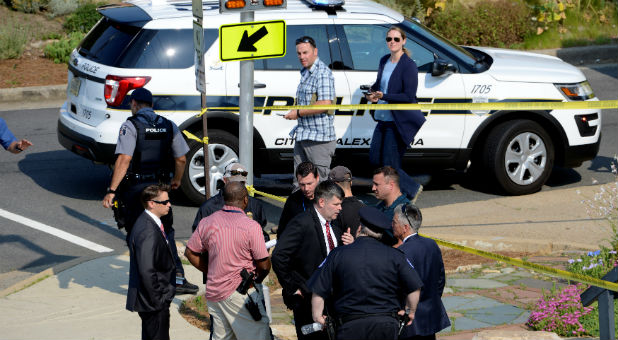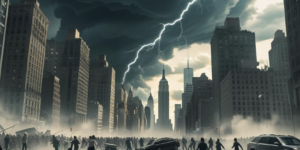‘It Would Have Been a Massacre’
Congressman Steve Scalise remains in critical condition this morning. At least six people, including Scalise, were hospitalized after yesterday’s shooting at a baseball field in Alexandria, Virginia. The alleged gunman, James Hodgkinson, was killed.
Sen. Rand Paul was in a batting cage when the shooting started. He heard 50 or 60 shots. Then members of Scalise’s security detail began returning fire. Rand later told reporters, “I do believe that without the Capitol Hill police, it would have been a massacre.”
The attack by a Bernie Sanders supporter on Republican congressmen was condemned by Sanders as “despicable,” who added that his “hopes and prayers” were with the victims. Today we are not Democrats or Republicans but Americans. This was an attack on our democracy.
Meanwhile, officials report this morning that at least 17 people died in the fire that engulfed an apartment tower in London yesterday morning. The London Fire Brigade commissioner said, “In my 29 years of being a firefighter, I have never, ever seen anything of this scale.” The death total is expected to rise as more bodies are found.
In a day when we are more insulated from mortality than any generation in history, such tragedies bring the reality of death into focus.
Studies show that 60 percent of Americans die in hospitals, 20 percent in nursing homes, and only 20 percent at home. A century ago, by contrast, half of all Americans lived on farms, many of which were far from hospitals. Life expectancy was 48 years for men and 52 years for women (today it is 76 years for men and 82 years for women). Pneumonia and tuberculosis were the leading causes of death. Mortality was a daily fact for most.
Compared with the current conflicts in Iraq and Afghanistan, war deaths per 100,000 Americans were 60 times higher during World War I, 150 times higher during World War II, and nearly 1,000 times higher during the Civil War. In other words, we are far less likely to be affected personally by war than was the case for previous generations.
Even the way we describe death is revealing: nearly half of the ten million obituaries in one database used the term “passed away” rather than “died.” But when a heavily guarded congressional leader can be shot and nearly killed at a baseball practice, we are forced to admit that death is very real, and none of us is truly safe.
In times like these, we see our mortality in the light of immortality. We realize that these brief years on this tiny planet are the dash between the dates on our tombstone, a dot before the line, a moment before eternity. We understand that what matters most is not how long we live but how well we live. And we are forced to consider the truth of Scripture: “As it is appointed for men to die once, but after this comes the judgment” (Heb. 9:27).
Before the images of yesterday’s shooting fade from memory, I urge you to consider the reality that you are one day closer to eternity than ever before. Is that fact good news for you? If not, why not? {eoa}




























































